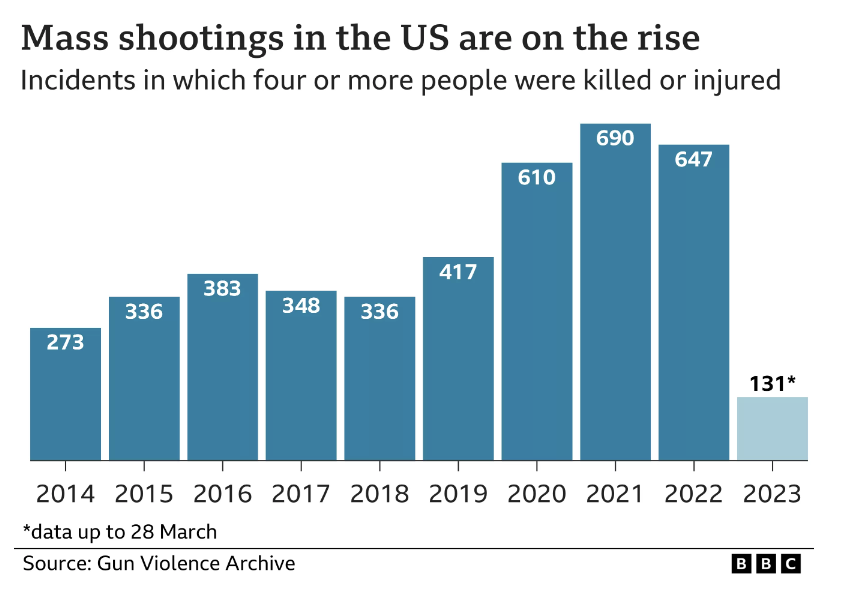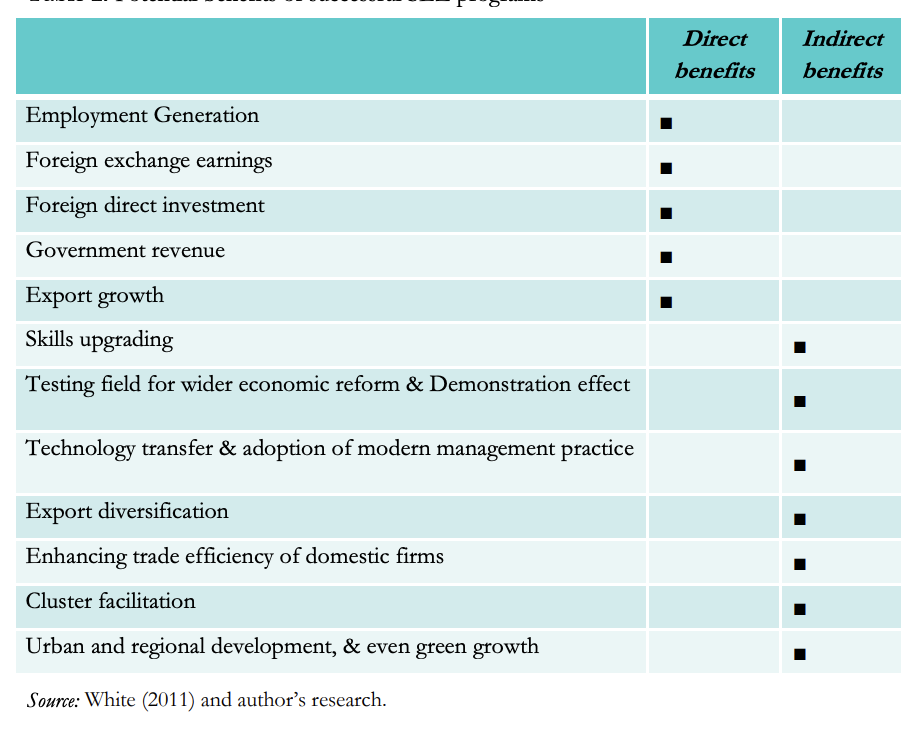PART V _ Rising inequality and pollution-induced climate change are among our time's most pressing societal challenges, with dire consequences.
“We do not inherit the world; we borrow it from our children.” —Wendell Berry, Activist and Author
Recent academic research has started to unpack how rising inequality shapes societies, including lower economic growth, reduced well-being, political polarization, and the potential cost of income inequality on business growth and commerce.
Additionally, little progress has been made towards achieving the 2030 Sustainable Development Goals (SDGs), despite agreements among the United Nations member states to cut carbon emissions in order to limit global temperature increases to 1.5°C above pre-industrial levels.
- According to a 2023 report from the United Nations Economic and Social Council, among the roughly 140 assessed SDG targets, only 12% are on course to meet the 2030 deadline. Meanwhile, 50% of the action plan has seen “weak and insufficient” progress. Moreover, progress on nearly one-third of the SDGs have either remained unchanged or fallen below 2015 levels.
- Given the slow pace of change, the Intergovernmental Panel on Climate Change (IPCC) believes that without increased and urgent mitigation action in the coming years, leading to a sharp decline in greenhouse gas emissions by 2030, global warming will surpass 1.5°C in the following decades, leading to irreversible loss of the most fragile ecosystems, likely resulting in an increase in ecological and environmental crises impacting the world's most vulnerable people.
To tackle rising global inequality and pollution-induced climate change, we must rethink many of the current systems, structures, and power dynamics that are regarded as standard practice throughout the world today.
What could a just and equitable society look like, and how can we get there?
Fostering Inclusive Financial Ecosystems for Economic Growth and Societal Well-being
Many underserved individuals and communities face barriers to obtaining capital access through loans, credit, grants, or investment opportunities necessary to start or scale a business. A recent study by the Federal Reserve found that roughly 80% of white-owned companies receive a part of or the entirety of the funding they seek. In comparison, minority-owned businesses receive the same result just 66% of the time.
This is often because funders systematically apply risk and regulatory requirements that do not consider the circumstances, roadblocks and/or inherent limitations that the underserved person or business faces. For example, the common practice of requiring large down payments, collateral, or proven sales success to provide capital can be inherently exclusionary.
Additionally, grant funders will often require the already stretched underserved applicant to invest significant amounts of their limit time and financial resources to apply for funding. For example, some grants will ask the applicant to match a significant portion of the total grant amount - sometimes up to 100% - in order to qualify.
Moreover, grant funding often requires months-long application processes through complex systems, rigorous compliance checks, and agreements to hand over IP in exchange for funding. One observational study recorded how much time a group of Australian scientists spent on grant applications. The study found that:
“An estimated 550 working years of the researchers’ time was spent preparing proposals for Australia’s major health and medical funding scheme.”
As success rates are historically 20–25%, much of the scientists’ time had no immediate benefit to either their research or society, instead they incurred significant opportunity costs in lost research output.
Systematic funding requirements often do not consider different backgrounds and put undue pressure on the individual, business, or community to have either already reached a certain level of success before qualifying for support or be willing to divert their limited time and resources or valuable IP to chase funding.
Lack of capital access for underserved people remains a significant challenge that can negatively impact the general welfare of the people and the economic growth of most nations.
To reduce global inequality and rebalance wealth, it's essential for developed nations to open up financial opportunities for more people, including:
- Training on implicit bias and the benefits of inclusive society for all leaders and individuals in decision-making and governing roles,
- Offer funding in the form of 0% loans, 0% credit facilities, 90%+ guaranteed loans, and high single-debt equity,
- Engage simpler processes to access grants, focusing on providing fair funding to minority entrepreneurs, researchers and sub-minority-led fund managers.
In addition to funding, local training and support programs are needed in underserved communities. For example:
- Empowering local underserved groups with actionable knowledge for self-sustainability,
- Supporting local initiatives of local entrepreneurs to develop local infrastructure,
- Training local workforce on the management of local infrastructure,
- Incentivizing entrepreneurship in local communities to solve outstanding issues.
This way, underserved individuals and communities can take the lead in solving local problems, starting businesses, and helping their communities.
There is clear value in fostering inclusive financial ecosystems, including greater personal well-being, productivity, living standards, financial stability, and wealth-building, which drives growth for the broader economy.
Embedding Greater Transparency to Balance National Security with Individual Rights
In recent years, concerns have grown over invasive searches and intentional misconduct by government agents and officers, notably in the United States. Such actions have raised significant doubts about the credibility of governments in matters of national security. The procedures that infringe upon human rights and lack transparency have sparked a heated debate about whether the safety and security of the people are being effectively addressed.
Critics argue that invasive searches, whether at border crossings, airports, or during law enforcement operations, have raised legitimate concerns about the balance between national security and personal privacy. Invasive searches that lead to violations of individual rights and dignity can erode public trust in the government's ability to protect the nation without overstepping its boundaries.
Moreover, intentional misconduct by government agents and officers, such as instances of abuse of power, corruption, or unauthorized surveillance, not only undermine public confidence but also have legal and ethical repercussions. Such actions can damage the reputation of law enforcement agencies and further fuel skepticism about the government's intentions. Take for example the US National Security Agency scandal reported by WikiLeaks which indicated that the NSA tapped phone calls involving German chancellor Angela Merkel and her closest advisers for years and spied on the staff of her predecessors.
Transparency, or rather the lack thereof, plays a pivotal role in this discussion. The secrecy surrounding certain government operations and intelligence activities has contributed to suspicions that unchecked power may lead to misconduct and human rights violations. Critics argue that a more transparent approach is necessary to rebuild trust and ensure that the government's actions align with the principles of justice and human rights.
Balancing the imperatives of security with the protection of individual rights remains a complex task, and the path forward requires a careful reevaluation of government practices and radical transparency to restore public confidence.
Requiring Total Transparency in Government Officials’ Spending
Disclosing details of government officials’ complete sources of income and spending behaviors may not be a local or state elections requirement. Still, it is essential for promoting accountability, preventing corruption, and maintaining public trust. Therefore, it should be the public's business and an ethical concern for elected officeholders.
For example, the too-common practice among government officials to reside in large homes or estates during their service years raises concerns about fiscal responsibility and personal priorities. As a former president from South America once said:
“You don’t stop being a common man just because you are president…”
Moreover, the mismanagement of tax and other funds is often protected by laws that either lack or block transparency. For example, the recent Florida Senate Bill 1616 provides "an exemption from public records requirements for records held by a law enforcement agency relating to certain security or transportation services; providing for retroactive application; providing for legislative review and repeal of the exemption; providing a statement of public necessity, etc."
In Honduras, a 2022 probe uncovered that around $11.7 million designated to agricultural projects had been diverted to several foundations and NGOs. A portion of the embezzled funds then went to electoral campaigns.
Creating transparency in government officials' spending would help:
- Drive Accountability: Transparency enables the public to hold government officials accountable for their spending decisions, ensuring responsible use of taxpayer funds.
- Prevent Corruption: Transparency is a deterrent against corruption, such as receiving “consulting fees" or other payments from powerful industries that may bias political decisions and actions. Greater transparency would also deter misuse of public resources by making officials aware that their actions are subject to scrutiny.
- Create Public Trust: Transparent spending practices build and maintain public trust in the government's ability to manage finances and provide essential services effectively.
- Ensure Efficient Resource Allocation: It helps identify inefficiencies and wasteful expenditures, leading to more efficient allocation of resources to areas of greatest need.
- Informed Decision-Making: Transparency empowers citizens to make informed decisions about their government and participate actively in public debates and advocacy efforts related to fiscal policies and priorities.
Transparency in government officials' spending is a fundamental aspect of democratic governance. It safeguards against corruption, promotes accountability, and allows citizens to participate actively in the democratic process. It is vital to ensure that public resources benefit the community and the nation.
Reducing Crime and Addressing Growing Distrust in the Judicial System
Over fifty years ago, Gary Becker, a Nobel prize-winning economist, argued that all crime is economic. Now, a recent survey by Gallup appears to verify Becker’s theory.
The poll asked 148,000 people in 142 countries about their perceptions of crime and how safe they feel across four measures. Testing the correlation between these questions and the amount of income inequality (as measured by the Gini coefficient) in any given country shows a strong and positive relationship.
“The results indicate that a one decile increase of the Gini coefficient is associated with a 4 percent increase of crime risk. This is a large increase compared to the 20 percent average crime risk in the sample.”
Reducing inequality can help reduce crime rates, enhancing safety and general welfare. Reducing inequality and increasing safety can be achieved by:
- Providing greater access to quality education - Ensuring access to quality education can help empower individuals, provide more significant opportunities and options for a better future, and help reduce the likelihood of criminal activities.
- Providing adequate and sustainable homes and infrastructure - Providing secure and sustainable shelter options, especially for vulnerable populations, is critical to promoting secure living environments, safety, and well-being.
- Investing in zero-crime zones - Establishing designated areas where crime is virtually non-existent, providing safety and security to residents.
- Enforcing judicial authority - Actively enforcing the judiciary's powers to enhance all citizens' safety and security.
- Ensuring checks and balances to create trust - Implementing a system of checks and balances within our judicial framework to inspire trust, encourage collaboration, and attract external investments.
- Focus on developing countries - Prioritizing these strategies in developing nations, where strengthening judicial powers can significantly improve safety conditions.
While the purpose of the Supreme Court of the United States is to ensure the rule of law, protect individual rights, and provide a final authority on legal matters within a country's legal system, recent decisions from the Supreme Court raise questions about the Court's political impartiality, its independence from political influences and lobbying, and whether the Court has simply become "politicians in robes."
The 2021 General Social Survey suggested confidence in the Court was among its lowest points in the last half-century.
According to an article in the Atlantic, there is a range of reasons why Court reform is due, including:
- A marked increase in the number of federal lawsuits filed,
- The record-low number of cases on the Court’s docket,
- The lack of diversity on the bench, particularly given that 108 of the 115 justices have been white men,
- The heated judicial-confirmation battles and novel constitutional hardball tactics—such as the Senate Republicans' refusal to hold hearings for a Democratic nominee to a vacant Supreme Court seat eight months before a presidential election, but then pushing through a Republican nominee just eight days before the following election.
Empowering Collective Expertise: A New Model for Police and Military Oversight
Shifting from concentrated executive control to a distributed and inclusive approach to military decision-making can reshape the landscape of global peace, prosperity, and sustainability.
The benefits of decentralized police and military oversight include:
- Enhanced Strategic Planning - Drawing upon the collective wisdom of rotating panels or collaborative forums can lead to more well-rounded and forward-thinking military strategies. By integrating insights from experts in global peace, prosperity, and sustainability, decisions can better align with broader societal goals.
- Reduced Bias and Blind Spots - Diverse representation can help mitigate potential biases and blind spots arising from concentrated executive power. An inclusive approach would foster a more balanced consideration of various perspectives, ensuring a more comprehensive evaluation of risks and opportunities.
- Promotion of Long-Term Interests - Expert-driven, distributed decision-making is more likely to prioritize long-term global peace, prosperity, and sustainability. By involving experts who understand the intricacies of these interconnected goals, military actions can be aligned with broader aspirations for a stable and harmonious world.
Embracing decentralized and inclusive military oversight harnesses the collective expertise needed to craft well-informed, forward-looking strategies. This shift could help bolster national security and advance global peace, prosperity, and sustainability in a collaborative and impactful manner.
Moreover, should executive power over the state military be decentralized to distribute inclusive rotating groups of American experts in global peace, global prosperity, and global sustainability to lessen any potential fear that a government militia could be raised against its citizens or otherwise misused by political powers if they are unarmed?
Developing Transparent Practices in Gun Ownership
The term "gun culture" refers to the attitudes, feelings, values, and behavior of a society or any social group in which guns are used. Local gun cultures are found worldwide, and attitudes toward guns vary greatly. Among the most studied and discussed global gun cultures is that of the United States.
Indeed, the term gun culture was first coined by Richard Hofstadter in a 1970 American Heritage article critiquing gun violence in the United States wherein Hofstadter described Americans’ unique belief in the
“...stubborn notion that the people’s right to bear arms is the greatest protection of their individual rights and a firm safeguard of democracy — without being in the slightest perturbed by the fact that no other democracy in the world observes any such “right” and that in some democracies in which citizens’ rights are rather better protected than in ours, such as England and the Scandinavian countries, our arms control policies would be considered laughable.” – Hofstadter, 1970
Since then, gun ownership and crime have only increased in the U.S.
- Today, American civilians own more guns than those held by civilians in the other top 25 countries combined.
- American civilians own nearly 100x as many firearms as the U.S military and nearly 400x as many as law enforcement.
- In 2020 and 2021, a sharp increase in gun ownership was seen due to the riots and the COVID-19 pandemic. Over 2 million firearms were purchased during the pandemic alone, and nearly half of the gun buyers appeared to be first-time owners.
Data shows that all types of gun violence - from homicide to suicide to mass shootings - are on a mostly upward trajectory in the U.S.

A 2023 Fox News poll found registered voters overwhelmingly supported a wide variety of gun restrictions:
- 87% said they support requiring criminal background checks for all gun buyers;
- 81% support raising the age requirement to buy guns to 21;
- 80% support requiring mental health checks for all gun purchasers;
- 80% said police should be allowed to take guns away from people considered a danger to themselves or others;
- 61% supported banning assault rifles and semi-automatic weapons.
Federal law currently does not require that background checks be made on private sales of guns, including at gun shows or online. However, given the desire of the majority of Americans to have greater gun control in the U.S., could enacting a law that requires firearm registration and annual inspections—similar to vehicle ownership—be a solution?
Under this system, gun owners would be required by law to register all firearms and submit to an annual inspection at their local law enforcement office, which would include:
- A check that the firearm has not been modified,
- Proof of continuous ownership or proof of sale.
The law would also allow the federal government to collect taxes on all gun sales. It would hold gun manufacturers and resellers liable and accountable for any human death resulting from the sales of that firearm, thereby encouraging strict and thorough assessment of all potential gun buyers.
Promoting Greater Transparency: Bridging Divides and Driving Equity
A crucial step towards dismantling systems that contribute to inequality relies on fostering greater transparency within governance, decision-making, and boards.
Government entities and investors play a pivotal role in this transformative process. Open and accountable reporting practices can ensure that decision-making and resource allocation are unbiased and reflective of the diverse needs of society.
In this context, denouncing any shred of ideologies born from scientific racism while embracing and teaching the principles of Critical Race Theory (CRT) holds promise. The phrase Critical Race Theory has become more well-known in recent years, though its meaning, purpose, and potential application are fraught with misunderstanding and mistrust.
In Brown v. Board of Education (1954), the Supreme Court ruled that separating children in public schools based on race was unconstitutional. It signaled the end of legalized racial segregation in the schools of the United States, overruling the "separate but equal" principle outlined in the 1896 Plessy v. Ferguson case.
Additionally, the Civil Rights Act, signed into law by President Lyndon B. Johnson in 1964, further prohibits discrimination based on race, color, religion, sex, or national origin.
Later, in the 1970s and 1980s, legal scholars and lawyers began to recognize that racial disparities persisted in society even though written laws were reported to be race-neutral. They realized the need to take a new critical approach to examining laws, policies, and structures as the source of fostering ongoing disparities. From there, CRT emerged as an approach to studying systems of institutional racism.
The theory is based on the idea that the existing policies, practices, and systems contribute to inequality against both racial and ethnic minorities as well as impoverished people of any color. According to Critical Race Theory, inequality is the result of bad policy and not bad people, as some may believe.
Re-examining current and historical practices is difficult, especially if it requires self-reflection and self-criticism. However, teaching CRT among public, private, and political leaders can contribute to a more informed and empathetic perspective, cultivating an environment where diversity is valued and voices from all corners are heard.
Developing an understanding of CRT to more easily identify biased policies and actions while prioritizing transparency in reporting across financial institutions, government bodies, and investment circles could help identify deep-rooted issues that perpetuate social and economic divides and provide a roadmap for meaningful change.
Revitalizing Special Economic Zones to Foster Sustainable Entrepreneurship
A Special Economic Zone (SEZ) is an area in a country designed to generate positive economic growth. It is typically subject to different and more favorable economic regulations, including tax incentives and the opportunity to pay lower tariffs.
These zones have the unique capacity to serve as incubators for innovation, trade, and job creation. Additionally, preferable economic regulations within these zones make them highly attractive for Foreign Direct Investments (FDI).
Some countries have declared an entire city or a province as a SEZ in order to test market-oriented economic reforms. Such an approach played an essential catalytic role in many Latin American countries' rapid economic growth and transformation. According to Adrianople Group—a research and advisory firm focused on educating the world about the benefits of SEZ—free zones in Central America have created more than 1 million jobs and account for about one-third of all FDI in the region.
With increasing concerns around global climate change and environmental sustainability, a new trend of industrial zones is gaining traction, heading toward a more comprehensive and integrated approach. The “Zones 3.0" approach addresses global trends in low-carbon or green growth as well as trade and investment policies with domestic institutional frameworks, industries, and communities.
Integrating sustainable infrastructure and practices into these zones could help revitalize the area and foster entrepreneurship around clean and green industries, renewable energy projects, and resource-efficient manufacturing processes that can drive economic growth and ecological preservation.
Some of the direct and indirect benefits of revitalized SEZs for sustainable entrepreneurship include:
- Innovation Hub Development - Modern SEZs can serve as vibrant ecosystems where sustainable entrepreneurs use cutting-edge technologies to collaborate, innovate, and co-create solutions for pressing global issues.
- Economic Resilience - Sustainable entrepreneurship within SEZs can contribute to economic resilience by diversifying industries, reducing dependency on finite resources, and promoting circular economy principles.
- Job Creation and Skill Development - By focusing on sustainable industries, these zones provide opportunities for skill development and training in areas that align with evolving market demands.
- Global Competitiveness - SEZs geared toward sustainable entrepreneurship can enhance a nation's global competitiveness by showcasing its commitment to eco-friendly business practices. This can attract foreign investment, partnerships, and collaborations, positioning the country as a leader in sustainable development.
- And more

Despite the development of several Special Economic Zones throughout developed and developing nations, their existence and benefits may not be well-known, especially among minority entrepreneurs. In that sense, initiatives that utilize former military soldiers and personnel to run outreach campaigns to entrepreneurs could help increase awareness and participation in SEZ programs. These veterans could also help manage development programs and safety within the Zones.
This would help increase innovation stemming from SEZs, while also helping reinstate veterans in society by offering meaningful work, stability, and community.
Reducing Vast Swings between Party Policies for Greater Progress
In the U.S. today, significant policy changes are enacted every four to eight years—depending on the agenda of the political party in power—and do not necessarily reflect the people's will. This leads to a lack of continuity and makes it difficult to assess the effectiveness of government actions or make meaningful progress.
For example, in 2017, the U.S. Administration announced that it would withdraw the United States from the landmark Paris Agreement on climate change which was adopted in 2015 by 195 nations including the U.S., which is one of the largest emitters of greenhouse gasses in the world.
The U.S. administration at that time also rolled back carbon pollution limits from power plants, cars, trucks, and fossil fuel operations. This decision was made despite the fact that many American cities, states, and companies had vowed to drastically reduce their carbon dioxide and other greenhouse gas emissions in the coming years, and were seemingly aligned with U.S. participation in global climate action.
SUMMARY
Systems of exclusion lead to inequality and social unrest. Meanwhile, continued dependence on fossil fuels exacerbates pollution-induced climate change, leading to increased environmental disasters, social anxiety, climate migration, and unnecessary deaths.
On this annual World Day of Social Justice—an international day recognizing the need to promote social justice in all its forms—Ready Player Institute suggests that to tackle rising global inequality and pollution-induced climate change, we must rethink many current systems, structures, and power dynamics that are regarded as standard practice throughout the world today.
This includes updating social systems and environmental policies, implementing transparent and decentralized government practices, and amending the basis of our shared understanding of human prosperity and the pursuit of happiness.
ABOUT READY PLAYER INSTITUTE
Ready Player Institute is a 501(c)(3) non-profit organization addressing disparities in underserved and vulnerable regions, including LATAM, the Caribbean and Pacific Islands.
Their mission is to foster greater diversity and inclusion within research and entrepreneurship, all while harnessing innovation and technology to drive sustainable solutions.
Your contribution to Ready Player Institute through Uprise will directly support individuals from minority backgrounds in underserved regions. These funds will enable them to access essential training and laboratory programs aimed at digitizing tangible assets, improving educational opportunities, advancing healthcare services, optimizing the food supply chain, and addressing the pressing issue of climate change.
Ready Player Institute collaborates closely with Project DARP, Ready Player Infrastructure, and Ready Player Ventures, forming a comprehensive network dedicated to positive change and innovation.
Your support can make a meaningful difference in their efforts to empower underserved communities and drive progress in these critical areas.
🌍 Join Us in Making a Difference! 🌱
Do you have innovative ideas, breaking news, groundbreaking research, or expert insights that can help tackle climate change, environmental pollution, and social inequity? Share your voice with the world and be a catalyst for positive change. Together, we can create a better future!
Contact us today on publishing@readyplayerinstitute.org.










